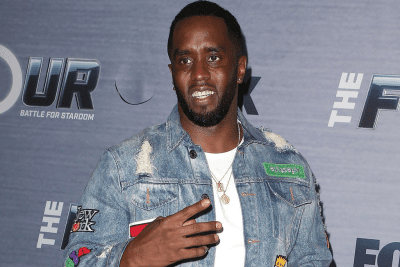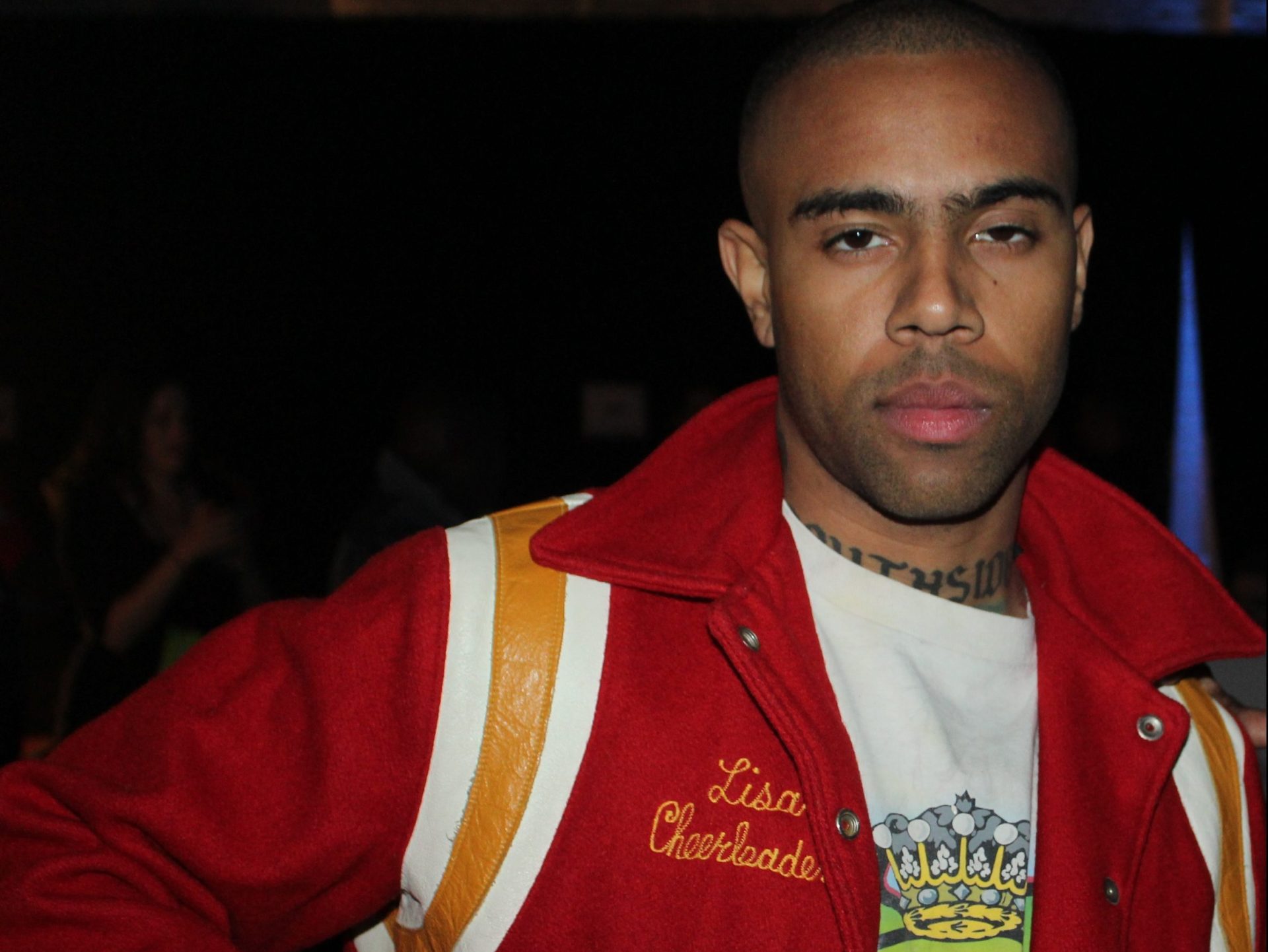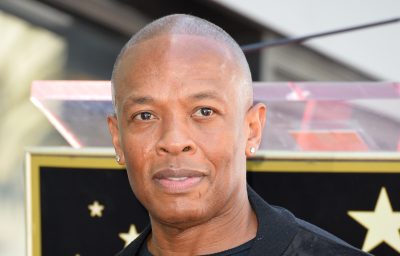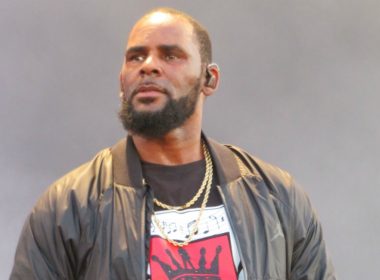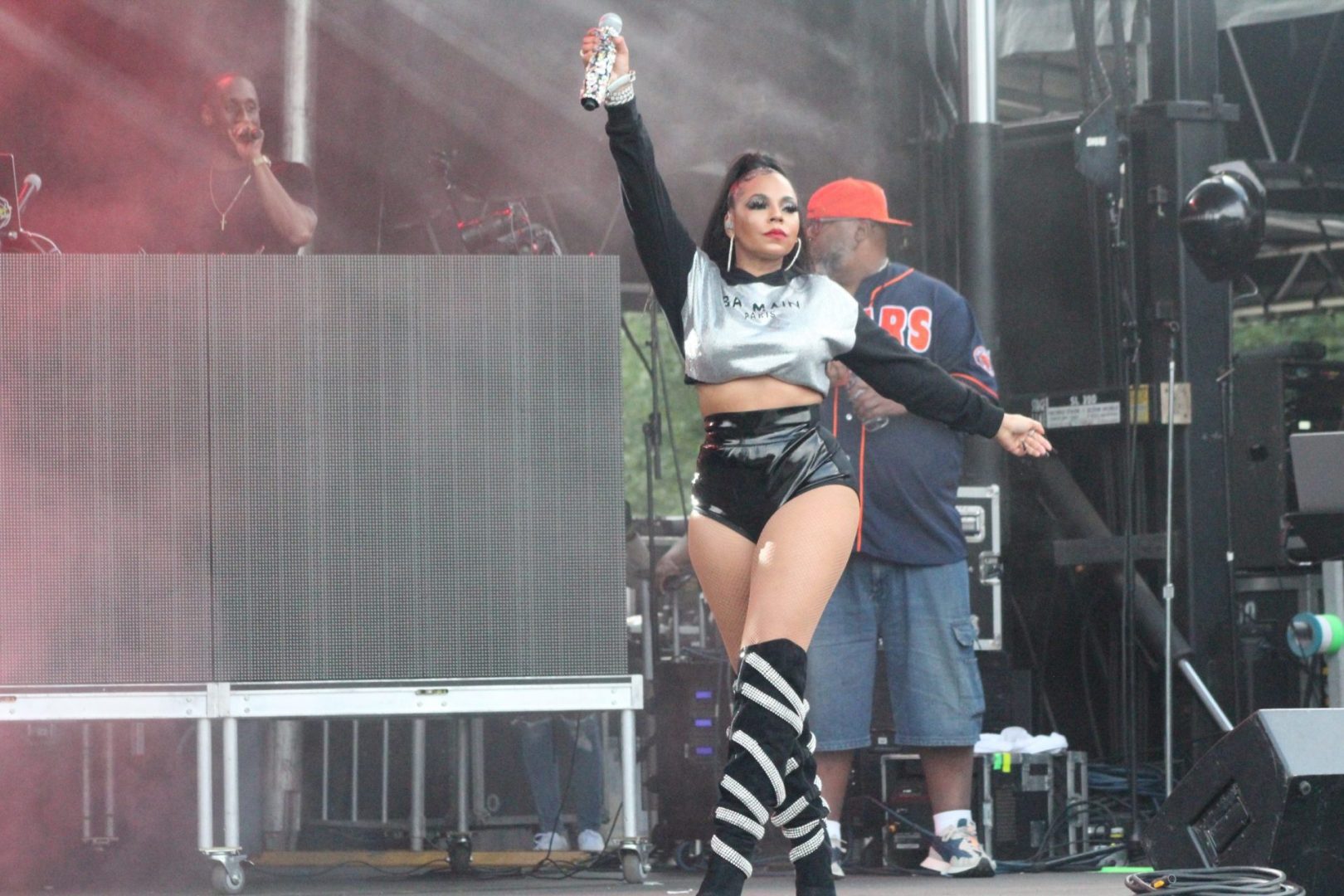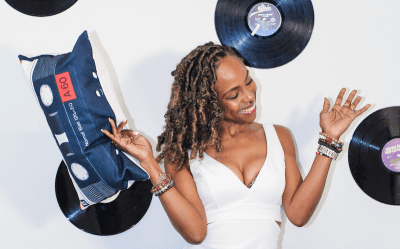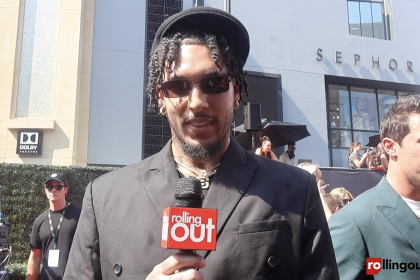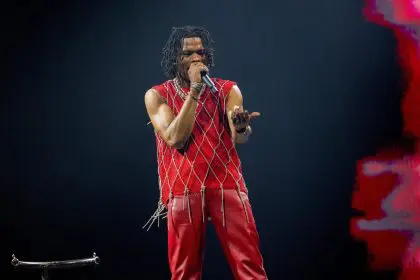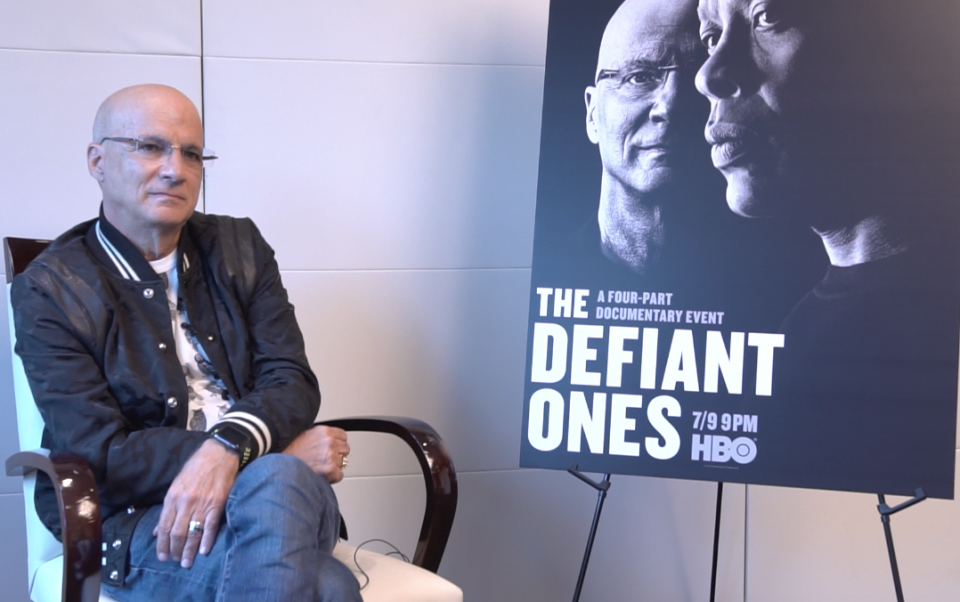
In the opening scene of the documentary The Defiant Ones, Jimmy Iovine and Dr. Dre are simultaneously experiencing one of the best and worst moments of their lives. On the verge of signing a $3B deal with Apple, footage is leaked on social media of Dr. Dre breaking the news before the actual deal was fully completed. The leaked video could have destroyed the record-breaking deal. It was a moment that defined the extreme highs and turbulent lows that have occurred throughout the careers of Iovine and Dr. Dre — two men who have reshaped music history and culture.
Directed by Allen Hughes, The Defiant Ones provides an intricate look at how Iovine and Dr. Dre started from humble beginnings to eventually have a seismic impact on hip-hop, pop and rock ‘n’ roll. The film provides unearthed footage of Iovine as a young engineer for Bruce Springsteen and Dr. Dre’s first show as a DJ and teaching Eazy-E how to rap in the studio. It also explores the rough patches such as Iovine’s failed relationships, Dr. Dre’s domestic issue with journalist Dee Barnes, and the East Coast vs. West Coast rap beef that ended with the murders of Tupac Shakur and Biggie.
But Iovine and Dr. Dre’s consistent drive to bounce back from failures is what makes this four-part HBO documentary so inspirational. From Iovine’s work with Springsteen to Dr. Dre’s The Chronic album and successful mentees such as Snoop, Eminem, and 50 Cent, to the $3B Apple deal for Beats by Dre, Iovine and Dr. Dre have proved that there is a way to reach the pinnacle.
Several weeks before the debut of the documentary, Iovine sat down with rolling out to share his thoughts on life with Dr. Dre, his musical journey, and the story behind The Defiant Ones.
I want to start by asking you about the opening of the documentary, The Defiant Ones. I won’t tell too much, but a video of Dr. Dre speaking about the Apple deal leaked before the deal was done. What was your initial reaction when the video leaked?
It’s hard these days to be private when all the journalists want news because there are so many outlets and so few stories. Well, Dre doesn’t think about things in terms of social media, but Tyrese does I guess. And so they were having a great time and the deal just got leaked. So someone put it on Facebook and it almost caused a nuclear explosion [laughs].
In the early 2000s, the music industry often neglected some of the new technology when it came to downloading and streaming. Why was it important for you guys to embrace technology with Beats by Dre and partner with Apple?
Normally, technology would help the music industry. When the LP was invented, it brought the album [about]. Then you had cassettes and CDs. And there are different ways of recording with ProTools. But when Napster came out, now you got music out there [that’s] tradable for free. And that was the beginning of technology in the arts and the creative side-splitting. So we always wanted to go on a journey and blend them because when we met Steve Jobs, he taught us that the liberal arts and technology can live together. And it was a powerful message. But it doesn’t right now. So why we were able to bring our company to Apple was because we felt that it’s the one place where you can actually accomplish that.
In the film, we get a chance to see the early failures that you and Dr. Dre endured. Why was it important to get past those failures and learn from your mistakes?
The real thing is that we are all frightened. If you are not frightened you are not original. Everyone’s frightened. It’s how you deal with that fear. It’s very very powerful. And what you’ve got to do is get it as a tailwind instead of a headwind. And that’s a little bit of a judo trick in your mind. And once you learn that, fear starts to excite you. Because you know that you are going to enter into something and try it and risk. And once you can get going, it’s a very powerful thing.
Although you come from a rock background, why was it important for you to embrace rap in its early stages?
Well, I didn’t know a lot about hip-hop. I came out of producing rock records and John McClain introduced me to Dre and Suge and they played me The Chronic. And I didn’t understand hip-hop. I thought the sound wasn’t together. But when they put The Chronic on, I was stunned. And I just said ‘Who made this record? Who engineered it?’ Dre said he did. I asked, ‘Who produced it?’ He said he did. I said ‘Wow, this is a whole other thing.’ And I got really excited and I just made the deal with them. And then I felt that it should be made worldwide. I said this music should be heard everywhere. It was the attitude of it. It reminded me of the [Rolling] Stones in the early days.
The film also takes a look at the East Coast vs. West Coast battles in hip-hop. How did that impact you?
It was bad. First of all, let’s cut to the chase, which is Tupac and Biggie Smalls both died at very young ages. These were incredibly talented people, incredibly inspired people, they would inspire people, and they were inspired. So, that whole thing was a mess. It was just a mess. It was based on ignorance and it was a mess and had nothing to do with music. So I was trying to encourage everybody to just calm down. You guys are making a lot of money and [have] a lot of success. But for some reason, egos got out of hand and that was it.
In the film, Eminem said that you and Dr. Dre produce each other. Can you go deeper as to why he would say that?
Well, he knows what I do best and I know what he does best. It’s like being in a band. I know where his strengths are and he knows where my strengths are, so we don’t ever fight, we disagree. But when I know he’s really pushing for something and he’s not going to move, I back off and vice versa. He knows that what I’m doing is right for the project. So that’s how you produce each other.
You once asked an artist, “do you want to be a steak or cheeseburger?” Meaning, no one remembers a cheeseburger, but you always remember a good steak. With this film, how do you want it to be remembered?
I want this film to inspire young people to keep going. It’s to get over that intimidation and get behind it and just go and push ahead. You should try and fail and not be afraid. Get up again. That’s what I hope comes out of this.

